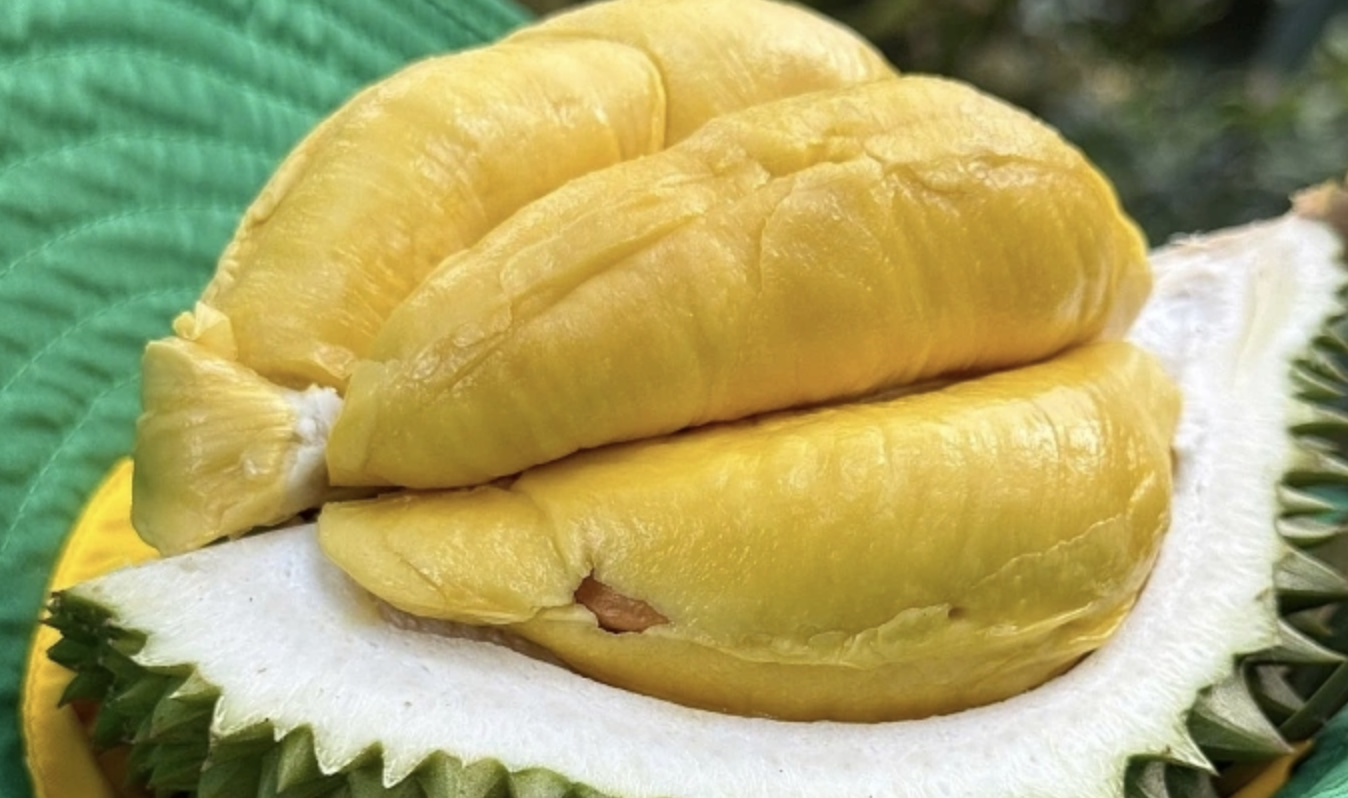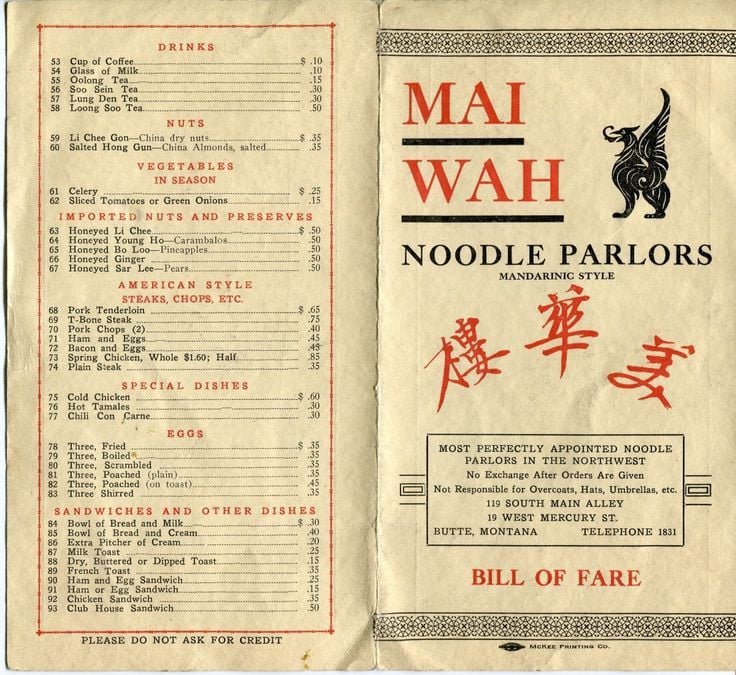Chinese Takeout is a bite-sized, biweekly RADII feature that examines Chinese food from the inside out, by disentangling the (hi)stories behind a single dish or restaurant. Write to us if you have a suggestion or submission.
If you’re a restaurant with any amount of success in China, you’re no stranger to the phenomenon of copycats. Sometimes, these copycats do business in the same city, and grow so popular that customers aren’t sure which is the real thing.
That’s what happened to Er Guang Wonton (耳光馄饨) who are currently taking one of their alleged copycats to court for “unfair competition”. The dumpling brand has become something of a local legend in Shanghai in its 20+ years of operation, while its big business-backed competitor only cropped up in 2012. The twist here is that the younger Er Guang managed to register to the trademark first, making the ensuing legal battle a sticky one.
We decided to take the stand and taste a few of these dumplings on our own, to see which one’s recipe would hold up in a court of flavor.
The Place
Er Guang Wonton (耳光馄饨) started as a dumpling stand in a traditional neighborhood on Zhaozhou Road back in 1997, run by a husband-and-wife team from Suzhou. The name “Er Guang” translates to a “slap in the face,” because as one customer remarked, the flavor is so delicious you can get slapped in the face and still not want to put the wontons down.
Over the years it’s grown into eight establishments around the city, although the original shop has since closed.

Er Guang Wonton’s Yuyuan Road shop
Although wontons in Suzhou are typically eaten plain, hot and submerged in broth, the hole-in-the-wall started serving dry variations to cater to Shanghainese customers, who typically eat them cold and swimming in sauces like sesame and chili oil.
Related:
 Chinese Takeout: Who Makes China’s Most Sought-After Dumplings?The xiaolongbao dumpling dominates Shanghai eating, and one brand dominates xiaolongbao in ShanghaiArticle Mar 22, 2019
Chinese Takeout: Who Makes China’s Most Sought-After Dumplings?The xiaolongbao dumpling dominates Shanghai eating, and one brand dominates xiaolongbao in ShanghaiArticle Mar 22, 2019
The History
Founder Pan Nanyun (the husband from the original husband-and-wife team) told Chinese State media outlet The Paper that the knock-off was leeching off of the original brand, launching an “official website” and large-scale advertising campaign to pose unfair competition, deceive customers, and attract investment.

The Pan family “Er Guang” franchise (top) and alleged copycat (second from top) on Chinese listings website Dianping
Wang Wei, head of the other Er Guang founded in 2012, denied that he had any knowledge of the original “Er Guang” brand or that his company had done anything wrong. Now, the former has taken the latter to court, waging a legal war over the wontons that made them both “internet famous” in the first place.
Given China’s enforcement of copyright law, does the older Er Guang actually have a case? Wang’s business is backed by a larger corporation, Meiya Investment Holdings Co., Ltd., that actually registered the original copyright. According to The Paper‘s article, they would have to prove that there’s unfair competition — namely that the first brand has had a significant influence and that the copycat was using them to increase their popularity. But if the recent trademark ruling in favor of Supreme US is any indication, there’s still hope that the case could go in favor of the Pan family’s shop.
Related:
 Fake Supreme Loses China Trademarks, Presumably to Real Supreme“Supreme Italia” has previously opened flagship stores in Shanghai and mooted partnerships with the likes of SamsungArticle Jun 06, 2019
Fake Supreme Loses China Trademarks, Presumably to Real Supreme“Supreme Italia” has previously opened flagship stores in Shanghai and mooted partnerships with the likes of SamsungArticle Jun 06, 2019
The Dish
When two battling brands of wonton go to court over who gets to keep the name, it seems only right for us to settle the score the old-fashioned way: a taste test.

A steaming bowl at Er Guang Wontons (耳光馄饨)
We hold court at the older Er Guang’s Yuyuan Road outlet, with a steaming bowl each of their pork and shrimp wontons, bobbing in clear broth.
Not a single dumpling disappoints. Each one is firm and flavorful, packed with fresh meat and vegetables and, usually, a whole shrimp — without a doubt some of the best dumplings my friend has had in the city, she claims.
It isn’t long before a waiter politely shuffles over, and explains that it would have been better to order the pork ones dry, with sausage on the side.
We don’t have to do much prodding for the waiter to mention the court case; he does so himself within minutes. “You want to watch out for fakes,” he warns us. “Ever since we became famous, lots of copycats have appeared.” He goes on to explain that the Pan family was too late to register a trademark on their name, and other businesses are now falsely operating under it. The shop has ben visited by many Chinese celebrities over the years, making it a certifiable “internet red shop” (网红店) and therefore an enviable target.
(It’s worth noting that the newer, trademark-registered Er Guang sells itself as an “internet red shop” as well — the phrase is even included in the logo.)
Now for the real test.

Dumplings from the newer Er Guang Wonton (photo: Erica Hu)
Nibbling on the newer Er Guang’s dumplings definitely leaves something to be desired. “It just isn’t as good,” our dumpling judge says, making a face. She goes on to add that while the skin of the dumpling is passable, the fillings aren’t nearly as fresh, and these dumplings skimp on the meaty portions that make the original Er Guang varieties so satisfying.
While we wouldn’t have much sway in a courtroom, we’d say under oath that taking 20+ years to perfect these wontons has definitely made a difference.
Additional reporting by Zhang Li & Erica Hu
Related:
 Chinese Takeout: Dragon Boat Bites by the Riverside in ZhujiajiaoThis dumpling’s popularity is as much tied to myth and memory as it is to sating local tastesArticle Jun 06, 2019
Chinese Takeout: Dragon Boat Bites by the Riverside in ZhujiajiaoThis dumpling’s popularity is as much tied to myth and memory as it is to sating local tastesArticle Jun 06, 2019


















